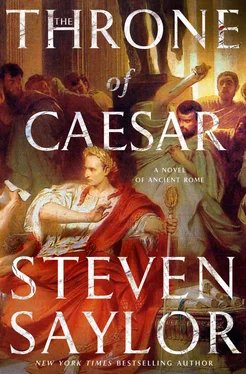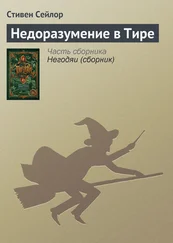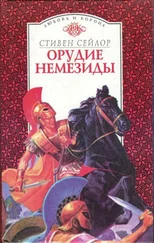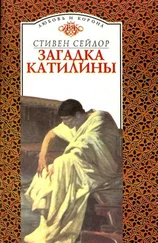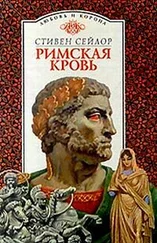Стивен Сейлор - The Throne of Caesar
Здесь есть возможность читать онлайн «Стивен Сейлор - The Throne of Caesar» весь текст электронной книги совершенно бесплатно (целиком полную версию без сокращений). В некоторых случаях можно слушать аудио, скачать через торрент в формате fb2 и присутствует краткое содержание. Год выпуска: 2018, Издательство: St. Martin's Press, Жанр: Исторический детектив, на английском языке. Описание произведения, (предисловие) а так же отзывы посетителей доступны на портале библиотеки ЛибКат.
- Название:The Throne of Caesar
- Автор:
- Издательство:St. Martin's Press
- Жанр:
- Год:2018
- ISBN:нет данных
- Рейтинг книги:5 / 5. Голосов: 1
-
Избранное:Добавить в избранное
- Отзывы:
-
Ваша оценка:
- 100
- 1
- 2
- 3
- 4
- 5
The Throne of Caesar: краткое содержание, описание и аннотация
Предлагаем к чтению аннотацию, описание, краткое содержание или предисловие (зависит от того, что написал сам автор книги «The Throne of Caesar»). Если вы не нашли необходимую информацию о книге — напишите в комментариях, мы постараемся отыскать её.
The Throne of Caesar — читать онлайн бесплатно полную книгу (весь текст) целиком
Ниже представлен текст книги, разбитый по страницам. Система сохранения места последней прочитанной страницы, позволяет с удобством читать онлайн бесплатно книгу «The Throne of Caesar», без необходимости каждый раз заново искать на чём Вы остановились. Поставьте закладку, и сможете в любой момент перейти на страницу, на которой закончили чтение.
Интервал:
Закладка:
Preceded, followed, and flanked by his twenty-four lictors, and carried aloft in his golden litter by four slaves, Caesar led his large entourage down the Sacred Way, through the heart of the Roman Forum and past the city’s most ancient temples and shrines. We then skirted the slope of the Capitoline Hill, passing by Caesar’s new Temple of Venus, and entered the Field of Mars. By this time, a great many ordinary citizens had joined the retinue, tagging along at the end or, where the way was wide enough, walking alongside.
Meto had a habit of walking faster than most people. Keeping up with him, I soon found myself near the front of the entourage, where I had a clear view of Caesar in his litter. At one point we were so close that I overheard Caesar remark to Decimus, who was walking alongside him, “What need have I for those Spanish bodyguards? Everywhere I go in the city, I am surrounded by friends.”
Decimus nodded, then looked about, a bit nervously, I thought.
The Senate had been scheduled to meet not long after dawn, but Caesar had dawdled so long that the noon hour was approaching. This was the day of the festival of Anna Perenna, and I saw many courting couples and their chaperones with food baskets heading for the sacred grove of the goddess outside the city, as well as older couples who no longer needed a chaperone but who still enjoyed an amorous holiday and the chance to drink, eat, and carouse outdoors. Many of the young people stopped to stare at the Dictator and his entourage, then went about their business, more interested in each other than in the pomp and ceremony of affairs of state.
“They shall have wet ground to lie on,” noted Meto.
“Who?”
“All those young lovers hoping to escape from their chaperones into the bushes.”
“And all the older couples still young enough to enjoy such a frolic,” I said.
“Diana and Davus are going to the festival.”
“They are?”
“Yes, while Bethesda looks after the children. Diana helped to plan the Anna Perenna celebration this year, just as Bethesda is helping to plan the Liberalia a few days from now.”
“Really?”
“Papa, do you pay no attention to what’s going on under your own roof?”
“I am aware that Bethesda and Diana have been going to meetings at Fulvia’s house,” I said, with a vague wave of my hand. “Thanks to Caesar … and Cicero … and you, I’ve had more important things on my mind.”
As we passed the crowds along the route, men and women gawked at Caesar in his golden litter, and many called out his name, as we in his retinue had done before we set out. “Hail, Caesar!” they would cry, waving to the Dictator and then shouting his name again if he saw them and waved back. Some ran toward Caesar, reaching past stern-faced lictors to hand him bits of folded parchment. Caesar made a show of reaching out to accept each of these written requests for favors. He collected them all in his left hand, keeping his right hand free to wave to the crowd or reach out to accept more bits of parchment.
As we were going down a particularly narrow street of ramshackle tenements, “Hail, Caesar!” cried a figure leaning from an upper-story window. The man who looked down at us had long, unkempt hair, a scarred face, and a patch over one eye. “Go show the Parthians!” he cried, shaking his fist. “Show them what Romans are made of, the way we showed those Aedui up in Gaul.”
Caesar leaned out of his litter to peer up at the man, then signaled to the bearers to stop. “You were with me when we laid siege to Bibracte?” he asked.
“That I was, Imperator. The day we breached the walls I killed fifty men—and raped a dozen boys while I was at it!” He laughed harshly. “But I did pay a price.” He pointed to his eye patch and then inserted his thumb into his mouth and made a popping noise, as if to replicate the sound of an eye plucked from its socket.
Caesar stared up at him. “Yes, I remember you,” he said. “Marcus Artorius, centurion of the Seventh Legion.”
The man’s disfigured face lit up. “That I am, Imperator. Or was. And you remember me, after all this time? Imagine that!”
“I don’t forget a citizen who served bravely in a distant land, fighting for Rome.”
“Fighting for you, Caesar!”
“How are you faring now?”
The man’s smile faded. “Not so well as I might, Imperator. Fallen on hard times. No one’s fault but my own. Spent all my booty on boys and wine. Just to kill the pain, you see.” He grimaced and raised his left arm, to gesture at his scarred face, I thought, until I saw there was no hand at the end of the arm .
“That won’t do,” said Caesar. He summoned a nearby scribe and spoke in the slave’s ear. The scribe nodded and then stepped into the building. “I’m sending a fellow up to see you,” Caesar continued. “He’ll take down your name and some other details, and I shall see that you are properly cared for from now on. A man who’s made the sacrifices you’ve made for Rome should never go hungry.”
“Or thirsty!” said the man, and laughed.
Caesar smiled up at him, then gave him a wave and signaled the litter to move on.
I turned to Meto. “Caesar actually remembered the man’s name, out of all the thousands of soldiers he commanded. No wonder everyone calls him such a great leader.”
Meto flashed a crooked smile. “It’s a bit of a trick.”
“What do you mean?”
“Of course you’re impressed that Caesar remembers such an insignificant fellow. And it is remarkable that Caesar can hold so many names and faces in his head. But if he hadn’t recognized the fellow—which is much more often the case—he’d have simply waved and nodded to the man and moved on, and you’d have thought no more of it. But since he did recognize the man, and remembered his name, Caesar put on a bit of a show, knowing how much that sort of thing impresses those who witness it. He did this virtually every day when we were fighting in Gaul—recognizing soldiers and calling them by name. He had me make a note: ‘When you see a man whose name you remember, demonstrate it—and all the many whose names you’ve forgotten will assume that you remember them as well. Good advice whether in the field fighting Gauls, or fishing for votes in the Forum.’”
“I don’t remember reading that in his war journals.”
“It was edited out!” said Meto with a laugh. Then he wrinkled his brow. “‘Good advice whether in the field fighting Gauls, or fishing for votes in the Forum,’ he repeated. “But of course votes—and voters—don’t really matter anymore, do they?”
“Not once a man is dictator for life,” I said.
“But old habits die hard. Caesar took advantage of that chance meeting as if by reflex. I would never have remembered the man. And I’ll have forgotten him in an hour. But we’ll both remember that Caesar greeted him by name, honored his service, and rewarded his sacrifice.”
“Even a dictator must give the people reasons to love him.”
“And you have more reason than most, Papa.”
I suddenly felt ill at ease in my borrowed toga. No voters had ever elected me a magistrate, and thus set me on the Course of Honor, with a place in the Senate. The honor of wearing a senator’s toga had been bestowed on me by one man. I owed the voters of Rome nothing. What did I owe to Caesar? What did all the other appointed senators owe him? How and when might he call in the debt?
We entered a wider street and continued past the newer tenements and marketplaces of the Field of Mars, until at last the Theater of Pompey loomed before us.
The wing of the structure in which we would meet was still called the Senate House of Pompey, despite the Great One’s defeat in the civil war and his ignominious death. When Pompey, at the peak of his career, decided to erect a gigantic theater on the Field of Mars—the first permanent, purpose-built theater ever to be constructed in Rome—to satisfy old-timers with religious objections he added a temple to Venus at the top, above the last row of seats, and to bring in some rental income he also added a sprawling portico with shops and warehouses, and, since there was still marble in the quarry, he also constructed a chamber built specifically for meetings of the Roman Senate—all of which he named for himself: the Theater of Pompey, the Portico of Pompey, the Senate House of Pompey. As the Capitoline Hill dominated the city of Rome, so the vast, towering complex erected by Pompey dominated the Field of Mars.
Читать дальшеИнтервал:
Закладка:
Похожие книги на «The Throne of Caesar»
Представляем Вашему вниманию похожие книги на «The Throne of Caesar» списком для выбора. Мы отобрали схожую по названию и смыслу литературу в надежде предоставить читателям больше вариантов отыскать новые, интересные, ещё непрочитанные произведения.
Обсуждение, отзывы о книге «The Throne of Caesar» и просто собственные мнения читателей. Оставьте ваши комментарии, напишите, что Вы думаете о произведении, его смысле или главных героях. Укажите что конкретно понравилось, а что нет, и почему Вы так считаете.
